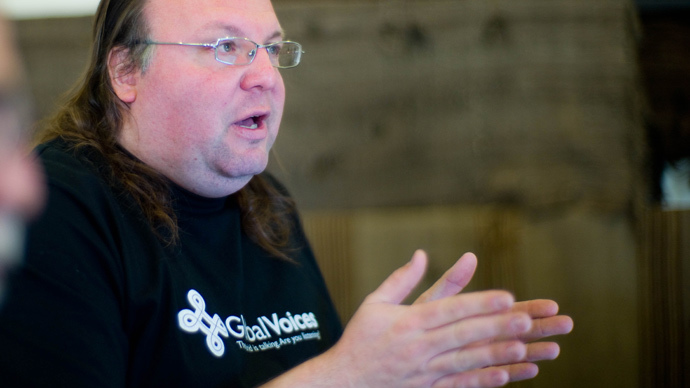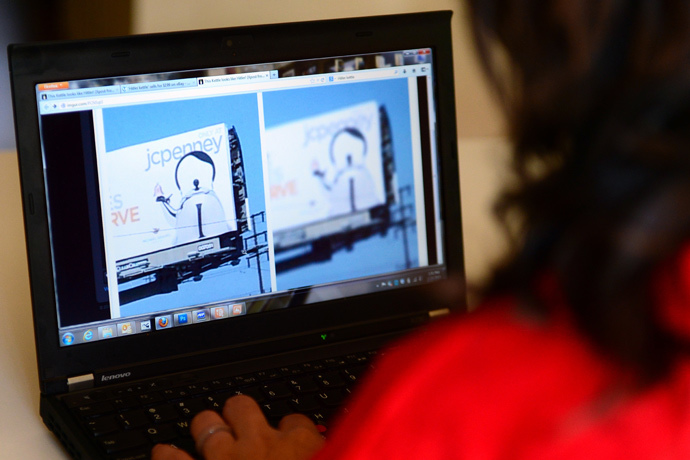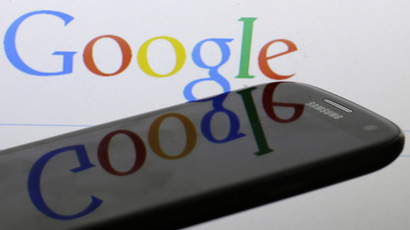Creator of pop-up ads apologizes for inventing ‘internet’s original sin’

Pop-up advertisements seem to have been irritating users online since the dawn of the World Wide Web. Now the man responsible for creating the code that ushered in an age of internet whack-a-mole is apologizing for the lack of privacy he brought about.
“I wrote the code to launch the window and run an ad in it. I’m sorry. Our intentions were good,” Ethan Zuckerman, director of the Center for Civic Media at MIT and principal research scientist at MIT’s Media Lab, wrote in an essay for The Atlantic.
"Not only did I deploy what was probably the first popup, I wrote the javascript and the server-side Perl to launch it," Zuckerman told the magazine’s Adrienne LaFrance in a follow-up. "I'm old."
But the former designer and programmer for Tripod.com is not just apologizing for the annoyance of the pop-ups or how the ad-based business model came to dominate the internet. What he’s really expressing remorse for is the online surveillance and lack of privacy that the business model has brought about. “The internet spies at us at every twist and turn not because Zuckerberg, Brin, and Page are scheming, sinister masterminds, but due to good intentions gone awry,” he wrote.

Zuckerman cited a lecture by Maciej Ceglowski, delivered at the Beyond Tellerrand web design conference, to note how online ads are used today. “Advertising became the default business model on the web, ‘the entire economic foundation of our industry’, because it was the easiest model for a web startup to implement, and the easiest to market to investors,” Zuckerman said.
Some business, like Yahoo and Gawker, make money off ads, but most don’t, according to Cegłowski. “But most businesses use advertising in a different way. Their revenue source is investor storytime,” Zuckerman wrote, defining it as “when someone pays you to tell them how rich they’ll get when you finally put ads on your site.”
“Investor storytime is not exactly advertising, but it is related to advertising. Think of it as an advertising future, or perhaps the world’s most targeted ad,” he added.
The MIT Media Lab researcher notes how little money is made off online ads. The ones that are worth the most are the ones that appear when you’re ready to make a purchase, the targeted ones that are based on your searches. “But most online advertising doesn’t follow your interest; it competes for your attention. It’s a barrier you have to overcome (minimizing windows, clicking it out of the way, ignoring it) to get to the article or interaction you want,” he wrote.
@ethanz You apologized for the popup ad on @TheAtlantic, which has the most invasive ads ever seen. @Slate next time? pic.twitter.com/aDk0LWndBL
— Collin Sebastian (@CollinSebastian) August 16, 2014
According to a topical analysis by Felix Stalder, a lecturer in digital culture and network theories at the Zurich University of Arts and senior researcher at the Institute for New Culture Technologies in Vienna, Facebook makes 60 cents of profit per user, while raking in a total profit of $791 million with a profit margin of 27 percent. “That’s a fascinating figure, because Facebook reports that users spend 40 minutes per day on the site, or roughly 60 hours per quarter,” Zuckerman wrote.
He noted that Stalder believes that users are working for Facebook by “generating content that the company profits from without getting compensated.”
But despite all of Facebook’s moves towards lack of privacy online, it is the small startups ‒ the ones that won’t ever gain a billion users ‒ that are responsible for the move towards increased internet surveillance. Mark Zuckerberg's social network doesn’t need to spy on its users to gain investors; it has sheer numbers as its selling point. But smaller companies need more and more information to stand out against their competitors.
“Demonstrating that you’re going to target more and better than Facebook requires moving deeper into the world of surveillance—tracking users' mobile devices as they move through the physical world, assembling more complex user profiles by trading information between data brokers,” Zuckerman wrote.

“So we build businesses that promise investors that advertising will be more invasive, ubiquitous, and targeted and that we will collect more data about our users and their behavior.”
Noting the outrage over a Facebook study that manipulated user’s emotions and OkCupid’s declaration that it too uses customers as guinea pigs, Zuckerman said, “Through successive rounds of innovation and investor storytime, we’ve trained Internet users to expect that everything they say and do online will be aggregated into profiles (which they cannot review, challenge, or change) that shape both what ads and what content they see… users now accept that this sort of manipulation is an integral part of the online experience.”
Users are now so trained to expect surveillance on and offline that there is little organized demand for change, he wrote. It was his code for pop-up advertising ‒ though their “intentions were good,” he reiterated ‒ that led the internet world down the rabbit hole into scanbots, cookies and online fingerprinting.
“I have come to believe that advertising is the original sin of the web,” Zuckerman wrote. His essay delves deeper into why he wrote the code for pop-up ads, and looks at other potential revenue streams for the internet.
“But 20 years in to the ad-supported web, we can see that our current model is bad, broken, and corrosive. It’s time to start paying for privacy, to support services we love, and to abandon those that are free, but sell us—the users and our attention—as the product,” he concluded.














